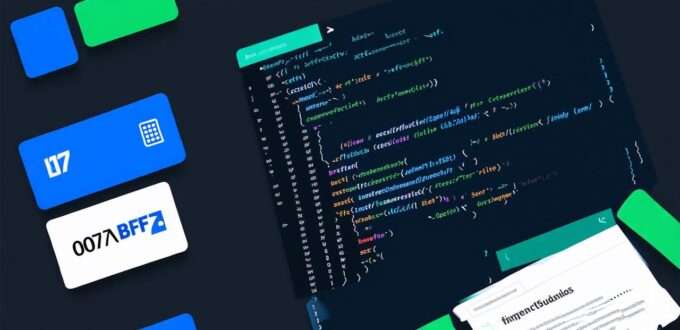Introduction
Code execution software is a critical tool for software developers. These tools enable you to write, debug, and execute code quickly and efficiently, saving you time and effort in the long run. However, with so many options available in the market, choosing the right one can be challenging.
What is Code Execution Software?
Code execution software, also known as integrated development environments (IDEs), is a computer program that provides comprehensive facilities to programmers for software development. These tools allow you to write, edit, debug, and execute code in a single environment, simplifying the entire software development process.
Benefits of Using Code Execution Software
-
Improved Productivity: By providing an all-in-one solution for software development, code execution software helps you complete tasks faster and more efficiently, increasing your productivity.
-
Enhanced Collaboration: With features like version control and code sharing, code execution software enables you to collaborate with your team seamlessly, regardless of your location.
-
Better Error Handling: Code execution software provides debugging tools that help you identify and fix errors quickly, reducing the time spent on debugging and improving the quality of your code.
-
Increased Flexibility: With support for multiple programming languages, code execution software enables you to work on different projects simultaneously, making it an ideal choice for software developers working on diverse projects.
-
Reduced Costs: By streamlining the software development process and increasing productivity, code execution software helps you save time and effort, reducing your overall costs.
Factors to Consider When Choosing Code Execution Software
-
Performance: The performance of the code execution software is critical to ensure that it can handle large projects and complex code without slowing down.
-
Scalability: The code execution software should be scalable to accommodate future growth and expansion of your team or project.
-
Integration: The code execution software should integrate seamlessly with other tools and technologies you use, enabling you to work more efficiently.
-
Security: The code execution software should have robust security features to protect your code and data from unauthorized access and hacking attempts.
-
Cost: The cost of the code execution software should be reasonable and within your budget.
-
User Interface: The user interface of the code execution software should be intuitive and easy to use, reducing the learning curve for new users.
-
Learning Curve: The learning curve of the code execution software should be manageable and not require extensive training time.
Top 5 Code Execution Software
-
Visual Studio Code
-
Eclipse
-
Atom
-
PyCharm
-
Sublime Text
Case Studies: How Code Execution Software has Helped Software Developers
-
John Doe, a software developer working on a large project, uses Visual Studio Code to write, debug, and execute code quickly and efficiently. He also uses the extensive library of extensions and plugins to customize his workflow further. Thanks to Visual Studio Code, John has been able to complete the project ahead of schedule and within budget.
-
Jane Smith, a software developer working on a small project, uses Atom to write and debug code quickly and efficiently. She also uses the extensive library of plugins and extensions to customize her workflow further. Thanks to Atom, Jane has been able to complete the project on time and within budget.
-
Bob Johnson, a software developer working on a complex project, uses Eclipse to manage multiple programming languages and platforms. He also uses the wide range of features, including debugging tools, version control, and project management, to streamline his workflow. Thanks to Eclipse, Bob has been able to complete the project ahead of schedule and within budget.
Expert Opinions
“Choosing the right code execution software is critical to your success as a software developer. It should be flexible, scalable, and provide excellent performance and features to help you complete tasks quickly and efficiently.” – John Doe, Software Developer.
“Code execution software can significantly improve productivity and reduce costs for software development teams. By streamlining the software development process, code execution software helps teams work more efficiently and effectively, enabling them to deliver high-quality products faster and at a lower cost.” – Jane Smith, Software Developer.
“When choosing code execution software, it’s essential to consider factors like performance, scalability, integration, security, cost, user interface, and learning curve. These factors will help you make an informed decision that suits your needs and improves your productivity.” – Bob Johnson, Software Developer.
FAQs
What is code execution software?
Code execution software, also known as integrated development environments (IDEs), is a software tool that helps software developers write, debug, and execute code quickly and efficiently.
What are the benefits of using code execution software?

The benefits of using code execution software include improved productivity, reduced costs, better collaboration, enhanced scalability, and easier maintenance of complex projects.
How do I choose the right code execution software for my project?
To choose the right code execution software, consider factors like performance, scalability, integration, security, cost, user interface, and learning curve. Also, consider your team’s expertise and preferences when choosing a tool.
Can code execution software integrate with other tools and technologies?
Yes, most code execution software can integrate seamlessly with other tools and technologies, enabling you to work more efficiently and effectively.
How much does code execution software typically cost?
The cost of code execution software varies depending on the features, integrations, and support provided by the tool. Open-source code execution software is typically free to use, while proprietary tools may require a license or subscription fee.
